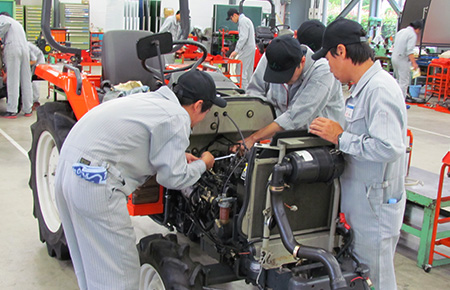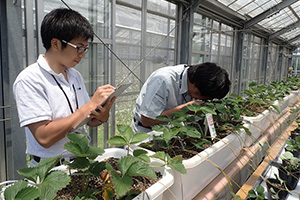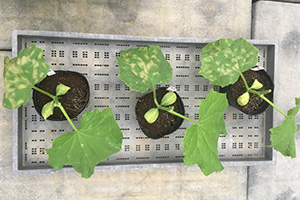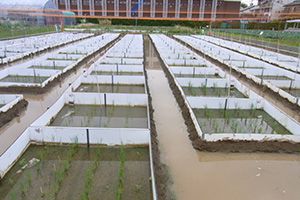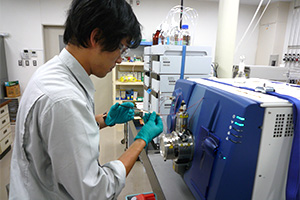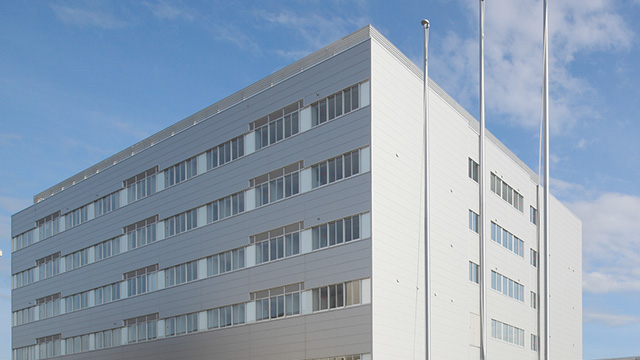
Research and Development
Agricultural Research and Development Center
The activities of the Agricultural Research and Development Center include R&D on agricultural production technologies, quality testing on products sold through the ZEN-NOH organization, and human resource development. It develops new varieties, cultivation technologies, and production materials to meet the needs of both producers and consumers, as well as developing food products that make use of agricultural produce. In addition, it hosts training courses and tours of its facilities, and undertakes dietary education initiatives in partnership with JAs.
- New Technology R&D and Solutions
- Testing to ensure safety and security
- Human resources development by the JA Group
New Technology R&D and Solutions
Development and selection of new varieties and development of production technologies
The Agricultural Research and Development Center develops and selects varieties with a view to their production and sale, including rice and vegetable varieties and varieties of spray mum unique to JA. The Center promotes more widespread adoption of varieties cultivated by ZEN-NOH, such as Harumi, a tastier variety of rice; Aji-Power, a more delicious leek; and the Richter variety of spray chrysanthemum. In addition, at ZEN-NOH Tomato Land and other facilities, it selects and promotes the use of resistant varieties developed by public research institutions and seed/seedling producers. The Center also develops and promotes widespread adoption of new technologies that contribute to labor savings, cost savings, and more stable production, such as underground drip irrigation systems for leek cultivation.
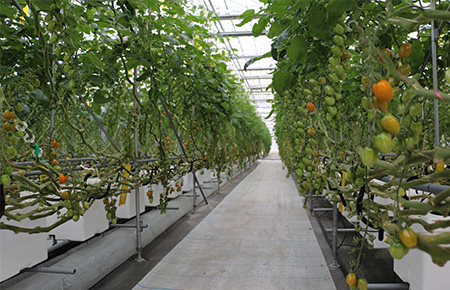
Development of food products using farm products and research into their ingredients
The Center conducts R&D aimed at developing food products using farm products, as well as expanding consumption of domestic farm products. This includes developing specific rice varieties for particular uses and proposing associated solutions; developing new ways of using rice; trialing technologies for keeping farm products fresh; explaining seasonal variations in fruit and vegetable quality; shedding light on the impact of cultivation technology on fruit and vegetable quality; supporting the development of processed food products (e.g. jam); and setting sell-by dates for meat, eggs, and processed foods made from them and evaluating the properties of their ingredients.
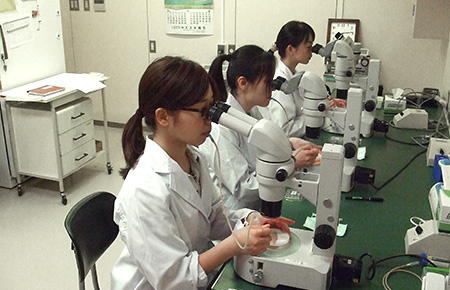
Development of a fertilization improvement system
The Sehi-Meijin fertilization improvement support system developed by the Center is a piece of software that ensures efficient use of fertilizer, without waste. The software simulates the quantity of nitrogen released by fertilizers (quick-acting, coated, organic, slow-release synthetic, and compound fertilizers), soil, and compost based on soil or air temperature data. Forecasting the quantity and timing of nitrogen release by the fertilizer and the soil facilitates appropriate fertility management tailored to crop growth patterns. This simplifies fertilizer brand selection and consideration of fertilization design.
Technical support for hydroponic cultivation
The Center analyzes the raw water and culture media used in hydroponic cultivation. It has designed a piece of software that designs an efficient fertilizer program based on the results of raw water and culture medium analysis. It has also put together an online Element Disorder Database to assist in identifying the chemical element responsible in the event of a crop developing a physiological disorder. Through these initiatives, the Center is supporting the stable management of hydroponic farms.
Development of new agrochemicals and efficient usage solutions
In partnership with agrochemical companies, the Center develops new agrochemicals that are highly effective against hard-to-control pests and weeds, while also being less labor intensive. The Center developed the widely used agrochemicals oxaziclomefone, a low environmental impact herbicide that is highly active against barnyard millet, and tefuryltrione, which is highly active against broadleaf weeds and is even highly effective against sulfonylurea-resistant weeds. It also developed the generic agrochemicals mancozeb (brand name: Penncozeb) and acephate (brand name: J-Ace). As well as developing new agrochemicals, it also offers suggestions for more efficient and effective ways of using agrochemicals, such as measures to combat hard-to-control pests and weeds.
Testing to ensure safety and security
Regional soil analysis
The Center undertakes chemical soil diagnostics, liquid culture medium analysis, and compost analysis, as well as physical and biological soil diagnostics. By establishing and enhancing its comprehensive soil diagnostics system, the Center assists in the development of good soil based on soil diagnostics, thereby contributing to proper fertilization practices.
Agrochemical residue inspections and crop residue studies
The Center carries out agrochemical residue inspections of fresh produce, such as fruit and vegetables, distributed by the JA Group. For more than 15 years, agrochemical residue inspections have supported the supply of safe fruit and vegetables. The Center has also carried out crop residue studies (analysis only) for agrochemical registration. With cutting edge analytical instruments, it was certified as compliant with the Principles of Good Laboratory Practice (GLP) for pesticides in 2015.
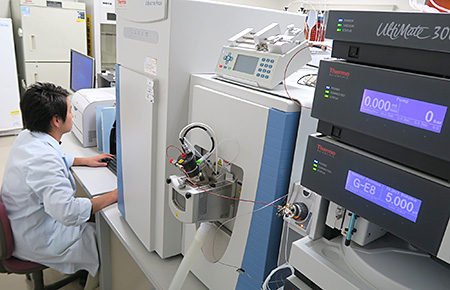
JA Group brand quality testing
The Center seeks to ensure that JA Group brand products — those bearing the ZEN-NOH or A-Coop brand — are consistent with the JA Group’s values, with an emphasis on quality and safety, consideration for the environment, and prioritizing the use of domestically produced raw materials. To this end, it analyzes ingredients, tests for microorganisms, and carries out sensory evaluations in pursuit of optimal flavor.
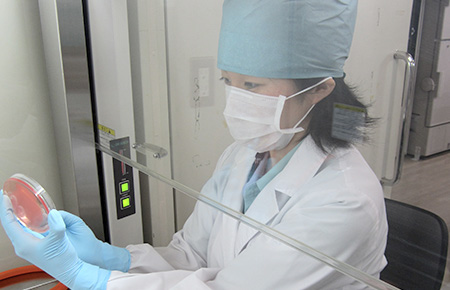
Quality control of packaging and horticultural materials
The Center sets its own standards for the packaging materials (cardboard boxes, paper grain sacks, etc.) supplied by ZEN-NOH and carries out quality control. In addition, it checks the safety of the raw materials used to make food packaging materials. In the case of horticultural materials (such as steel, covering materials, and relevant devices used mainly in greenhouses for horticultural crops), the Center checks the performance of new products, conducts on-site tests of new technologies, and works with relevant organizations and manufacturers to develop and improve products.
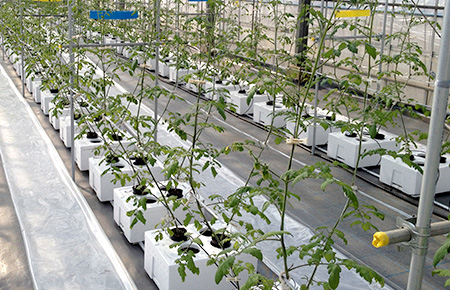
Human resources development by the JA Group
Training agricultural machinery repair and maintenance engineers
The Center holds various courses to train agricultural machinery repair and maintenance engineers. Aimed at complete novices, the Basic Course in Agricultural Machinery teaches course participants about the structure and functions of agricultural machinery and how to repair and maintain it. More than 20,000 people have taken this course since its launch in 1961, when domestically produced agricultural machinery first began to become prevalent in Japan.
